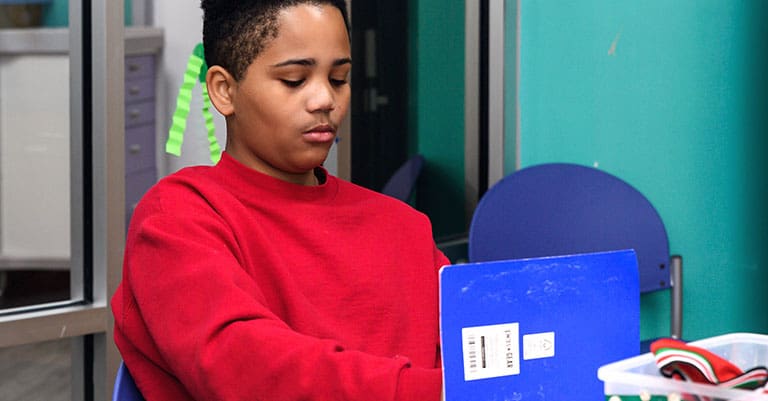After a traumatic event like a brain injury, it’s crucial for children and adults to be evaluated to understand how the injury affected their brain and what recommendations could be implemented for greater success in life.
Rachel Leppo, Ph.D., a licensed psychologist and pediatric neuropsychologist at Nexus Children’s Hospital, explained, “The field of neuropsychology studies brain-behavior relationships and applies that knowledge to specific patient populations. For individuals with brain injuries, we take what we know about brain development, their specific injury, and what they can do to anticipate what they need in a specific environment, like school or work.”
Working with pediatric patients at Nexus Children’s Hospital in the Westchase District of Houston, Dr. Leppo conducts inpatient neuropsychological evaluations to provide families and schools with an understanding of how a child’s injury impacts his or her ability to learn or function at home.
“Physicians request evaluations once patients are out of post-traumatic amnesia (PTA), when they are retaining new information consistently,” said Dr. Leppo. “Evaluations inform therapists and physicians about the patient’s current deficits and if these are related to the injury, existed prior to the injury, or worsened after the injury.”
Typically taking two to four hours, brief inpatient neuropsychological evaluations at Nexus Children’s Hospital help uncover a wide array of deficits depending on the severity of brain injury and any associated medical complications, like brain herniation or hypoxia/ischemia. Initially, Dr. Leppo will assess the patient’s overall cognitive skills to help her determine what if additional testing is needed.
“If the patient had a very severe brain injury and has very limited overall cognitive skills, I wouldn’t complete tests for higher level functioning skills; however, if the patient has intact overall cognitive skills I would want to know more about their higher level cognitive skills like attention, executive functioning, and processing speed,” said Dr. Leppo. “It’s important to recognize the degree of a patient’s overall deficits because the two require different levels of support in the classroom and at home.”
After the evaluation, a report is compiled that offers feedback and recommendations to the patient’s family. Depending on the age and development of the child, Dr. Leppo also covers some of the information with them. Families are also encouraged to share the report with their child’s school, so necessary and appropriate accommodations can be made to support the success of the student.
“Reports differ depending on the neuropsychologist who performed the evaluation,” said Dr. Leppo. “Mine is divided into sections that help break information down for families and educators.”
While not all sections are applicable to schools, the entire report is valuable and can always be referenced in the future should concerns or questions arise. Dr. Leppo’s report reviews relevant history and concludes with a summary of the tests and scores, as well as an explanation of what is challenging a patient and any diagnoses and recommendations.
“The report also notes any disabilities (e.g., learning disabilities, Attention-Deficit/Hyperactivity Disorder, mood disorders) that existed before the injury,” explained Dr. Leppo. “I’ll also explain the mild or major neurocognitive impairments that are consistent with their brain injury, as well as how the patient’s injury is influencing how he or she learns. I also make recommendations for the school to consider a 504 Plan or Individualized Education Program (IEP), when appropriate.”
After the neuropsychological evaluation, it is up to a child’s parent or primary caregiver and school to work together to create and implement the recommendations. While schools are not legally bound to follow the report and recommendations, Dr. Leppo urges families to advocate on their child’s behalf or consult with educational advocates.
“There are many accommodations that can be made to help out children with brain injuries, from extended time to repetition of instructions to community resources supporting emotion and behavioral management,” said Dr. Leppo. “Neuropsychological evaluations are very important to help us recognize the child’s unique profile, so we can identify specific recommendations to help children find success at school and home.”

